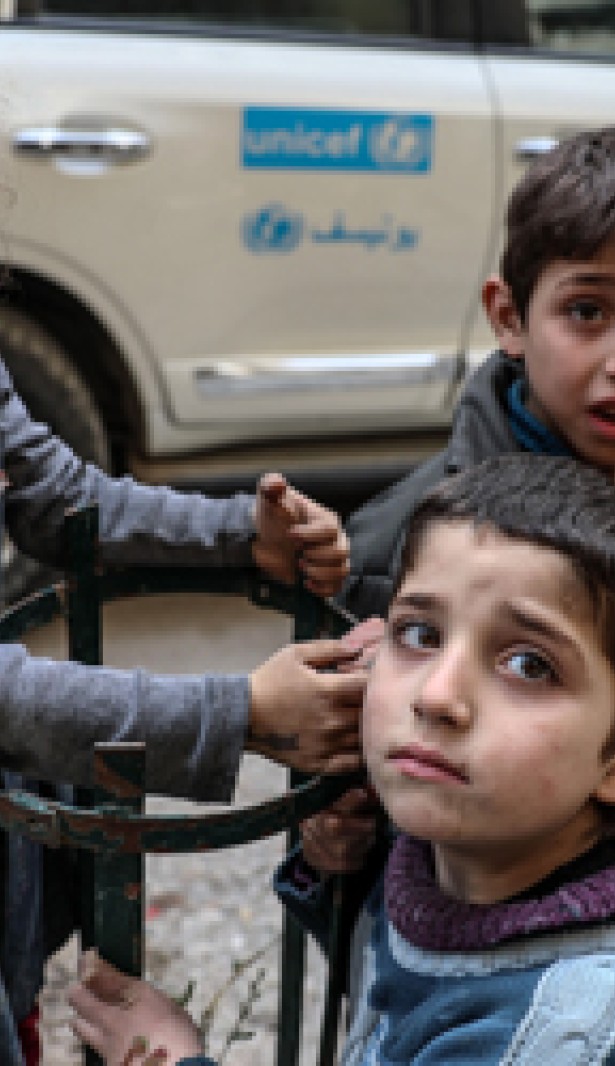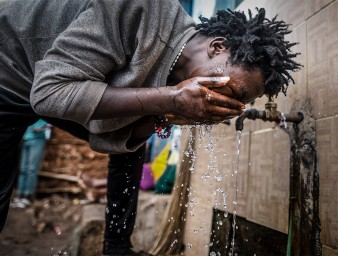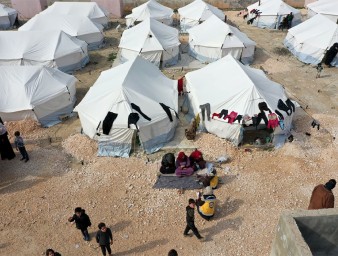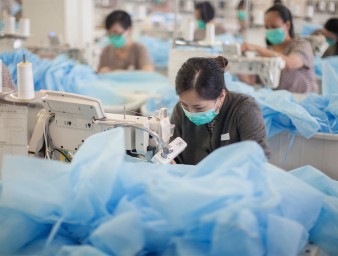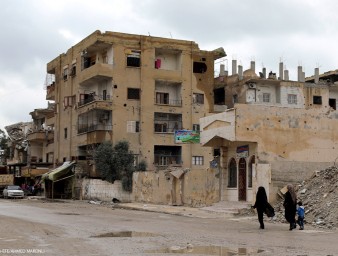Syria: the most dangerous place for children?
16 March 2018
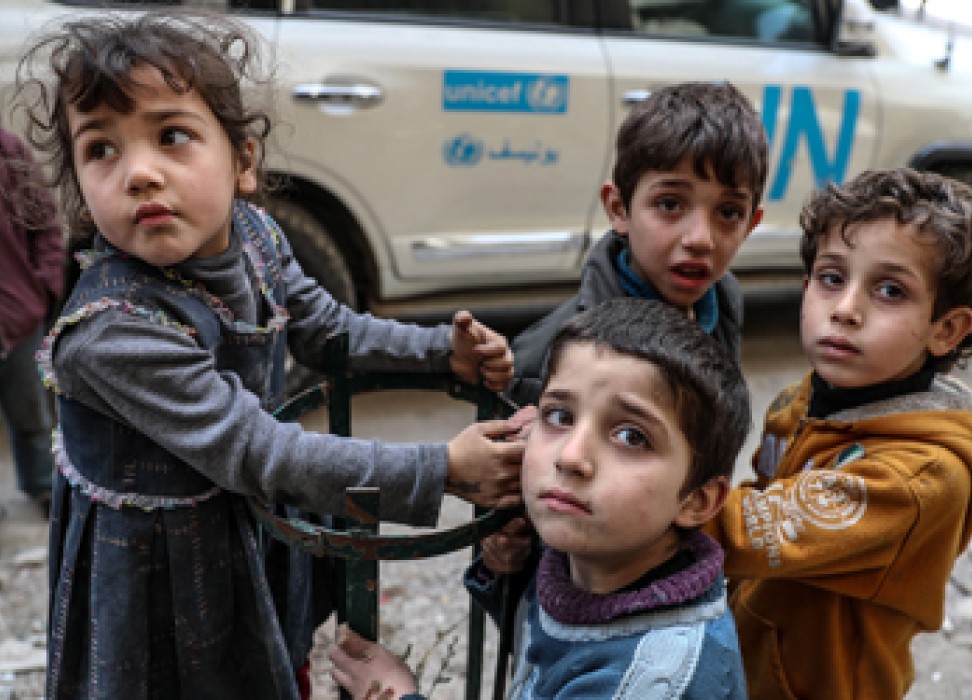
Children make up over 40 percent of the 13.1 million people in Syria that require life-saving assistance, pointed out Panos Moumtzis, UN Regional Humanitarian Coordinator for the Syria Crisis.
The year 2017, he said, had been the deadliest year of the Syrian conflict for children, quoting verified figures from the Syria Monitoring and Reporting Mechanism that reported at least 910 children killed and 361 injured primarily in Aleppo, Idleb and Deir-ez-Zor.
Moumtzis revealed these figures at a high-level panel discussion held by the Human Rights Council on the human rights violations against children in Syria.
The Human Rights Council listened to the testimonies and recommendations made by three members of Syria’s civil society who had gathered, through presences on the ground, information on violations of children’s rights in Syria.
“What is growing now in Syria is not just fear and hatred, but also the call for justice and peace, and the rejection of war itself, of all wars and weapons, and their promoters and apologists,” said Alaa Zaza, Founder of the Hurras Network for the protection of Syrian children.
Zaza viewed the international humanitarian and justices system as broken and said that the world should build anew.
“[A system] where it will be punishable by international law to close the borders in the face of refugees” and “where members of a security council will be elected and not enforced upon the rest of the world just because they are more armed than the others... just like street gangs.”
Haysam Osman, Director of the Children of One World organization, said that children were not only the casualties of the use of lethal weapons, such as chemical weapons, internationally prohibited against civilians, but were also suffered through the blockade.
“Shahd is 10 years old. She was expelled from the town of Aleppo following the blockade of the region which lasted 17 months. She now lives in a neighbouring country but that was not her choice and she is still wondering why she had to leave her school and her village. Why? Because of the bombardment. Why should they leave their homes and not the oppressors?” Osman asked.
He added that 1.5 million children are deprived of an education in Syria, and are afraid to go to school or unwilling because the infrastructure was destroyed.
“It is essential to provide schools and to protect them. It is essential to protect humanitarian personnel so there can be assistance to hospitals and schools. It is also essential to keep contact with all the armed factions to raise their awareness that there is no excuse for mobilising children,” he stressed.
“After so many years, we know now that the world is facing failure.”
Ibrahim Alkasem, one of the Founders of Urnammu for Justice and Human Rights, said that his organization had prepared a report on arbitrary detention and enforced disappearances in Syria, in particular of children.
Alkasem revealed that children in detention face similar mistreatment to that endured by adult detainees, which generally lead to the death of the child victims.
He described the unbearable psychological and physical mistreatment of children at the hands of most armed groups who use them as bargaining chips and witnesses against their parents. Children are accused of terrorism and forced to give false testimonies. They are subjected to special courts, such the military courts and other anti-terror courts that do not meet international standards.
ISIS, he added, subjects children to sexual slavery, forces girls to marry and non-Muslim girls to convert. Some children in detention were born in prison and jail is the only environment they have ever known.
“Armed groups and Government forces deny violations against children despite damning evidence that shows to the contrary. They benefit from the leniency of the international community,” Alkasem said.
“The international community should bear its responsibility by releasing these children and finding ways of documenting cases of enforced disappearances, identifying the burial sites of those who were killed, creating a DNA bank and keeping the Council interested in the fate of Syrian children,” he added.
Kate Gilmore, UN Deputy High Commissioner for Human Rights, assured that those responsible for the violence - within Syria and beyond – had been warned: “they are being identified; that dossiers are being built up for their prosecution; and that, with evidence in hand, and before duly convened tribunals, they will be held legally accountable for those crimes that with malice, indifference and great cruelty they continue to wage with scant regard for Syria’s children,” she said.
16 March 2018
